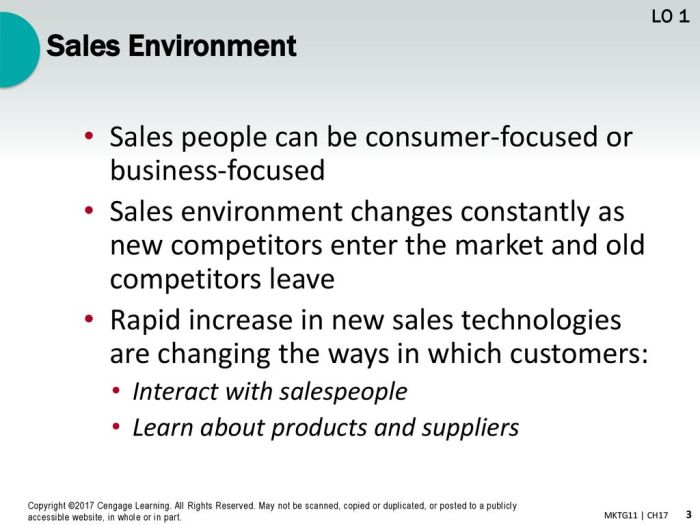Unlike consumer-focused salespeople business-focused salespeople – Unlike their consumer-focused counterparts, business-focused salespeople navigate a distinct sales landscape, characterized by unique roles, objectives, and target audiences. This article delves into the fundamental differences between these two types of salespeople, exploring their communication styles, relationship-building strategies, sales processes, and ethical considerations.
From understanding the challenges and opportunities they face to examining the industry-specific factors that shape their approaches, this comprehensive analysis provides valuable insights into the diverse world of sales.
1. Understanding the Distinction
Consumer-focused salespeople primarily interact with individual consumers, aiming to fulfill their personal needs and wants. Their focus is on building relationships, understanding customer preferences, and providing personalized recommendations. Business-focused salespeople, on the other hand, engage with businesses and organizations, seeking to establish long-term partnerships and drive revenue growth.
They navigate complex decision-making processes, often involving multiple stakeholders with diverse interests.
Both types of salespeople face unique challenges. Consumer-focused salespeople must adapt to changing consumer trends, manage high volumes of inquiries, and handle customer complaints effectively. Business-focused salespeople encounter challenges related to industry-specific knowledge, understanding complex business needs, and negotiating favorable terms.
2. Communication and Relationship-Building
Consumer-focused salespeople employ empathetic communication styles, actively listening to customers and tailoring their language to resonate with individual preferences. They leverage emotional appeals and storytelling to create connections and build rapport. Business-focused salespeople adopt a more professional and formal communication style, focusing on data-driven presentations, logical arguments, and persuasive techniques.
They emphasize value propositions and return on investment to convince decision-makers.
Relationship-building is crucial for both types of salespeople. Consumer-focused salespeople nurture relationships through personal interactions, offering personalized experiences and going the extra mile for customer satisfaction. Business-focused salespeople establish relationships by demonstrating industry expertise, providing value-added insights, and building trust with key stakeholders.
3. Sales Process and Negotiation

Consumer-focused salespeople typically follow a shorter sales cycle, with a focus on immediate transactions. They use persuasive techniques to close deals, often relying on incentives and promotions. Business-focused salespeople engage in a longer sales process, involving multiple touchpoints and decision-making stages.
They employ strategic negotiation tactics to secure favorable terms, considering both financial and non-financial factors.
Handling objections is a critical aspect of the sales process. Consumer-focused salespeople address objections by providing reassurance, offering alternative solutions, or emphasizing product benefits. Business-focused salespeople approach objections as opportunities to demonstrate their expertise, providing data-backed evidence and exploring underlying concerns.
4. Industry-Specific Considerations: Unlike Consumer-focused Salespeople Business-focused Salespeople
Industry-specific factors significantly impact the roles and responsibilities of consumer-focused and business-focused salespeople. In the healthcare industry, for example, consumer-focused salespeople must possess a deep understanding of medical terminology and regulations, while business-focused salespeople require expertise in healthcare economics and reimbursement models.
In the technology sector, consumer-focused salespeople focus on product demonstrations and user experience, while business-focused salespeople emphasize technical specifications and business value. Industry-specific knowledge and tailored sales strategies are essential for success in both consumer-focused and business-focused sales.
5. Training and Development

Training and development programs for consumer-focused and business-focused salespeople differ significantly. Consumer-focused salespeople receive training in customer relationship management, product knowledge, and sales techniques. Business-focused salespeople undergo training in industry-specific knowledge, negotiation skills, and financial analysis.
Continuous professional development is essential for both types of salespeople. They attend industry conferences, engage in online learning, and participate in workshops to enhance their skills and stay abreast of market trends.
6. Ethical Considerations
Ethical considerations play a vital role in sales practices for both consumer-focused and business-focused salespeople. Consumer-focused salespeople must avoid misleading or deceptive tactics, ensure product safety, and respect customer privacy. Business-focused salespeople must adhere to industry regulations, avoid conflicts of interest, and maintain transparency in their dealings.
Ethical conduct is paramount in building trust and maintaining long-term relationships with customers. Salespeople who prioritize ethical principles enhance their reputation and contribute to the overall integrity of the sales profession.
7. Future Trends

Emerging trends and advancements are shaping the roles of consumer-focused and business-focused salespeople. Technology, data analytics, and customer relationship management tools are revolutionizing sales processes. Artificial intelligence and machine learning are assisting salespeople in lead generation, customer segmentation, and personalized marketing campaigns.
Data-driven insights are becoming increasingly important for both consumer-focused and business-focused salespeople. They leverage data to understand customer behavior, tailor sales strategies, and improve conversion rates. The future of sales lies in embracing technology, leveraging data, and adapting to the evolving needs of customers.
Question Bank
What are the key differences between business-focused and consumer-focused salespeople?
Business-focused salespeople primarily target businesses or organizations, while consumer-focused salespeople sell directly to individual consumers. Their objectives, communication styles, and sales processes differ accordingly.
How do business-focused salespeople build relationships with clients?
Business-focused salespeople often engage in long-term relationship-building, fostering trust and understanding with their clients. They prioritize personalized communication, industry expertise, and a deep understanding of their clients’ needs.
What are the unique challenges faced by business-focused salespeople?
Business-focused salespeople may encounter complex decision-making processes, involving multiple stakeholders and extensive research. They must navigate complex sales cycles and handle objections effectively to close deals.